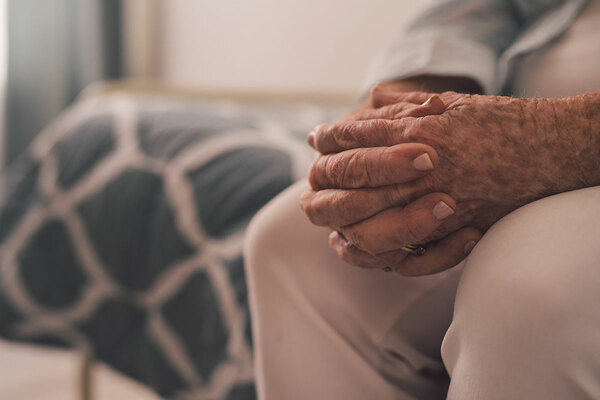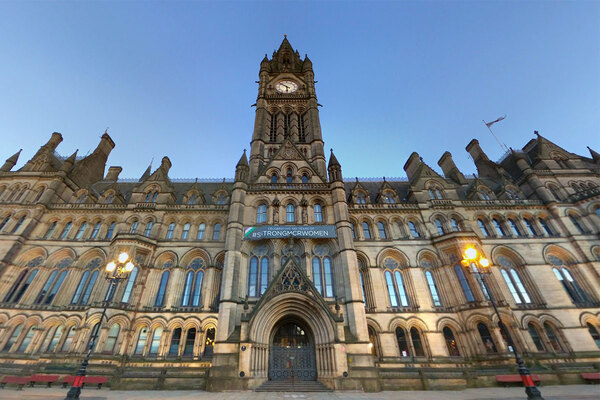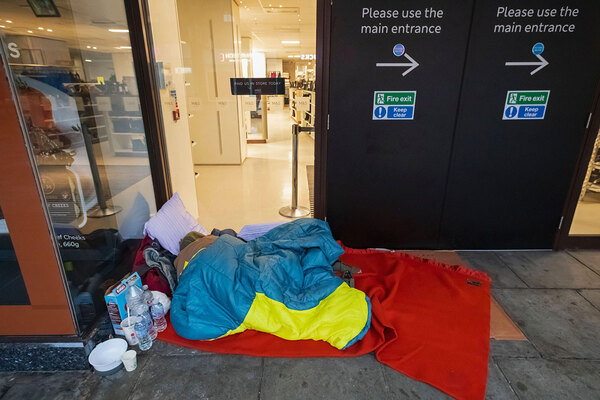Almost 100 housing academics call on government to ‘prevent human catastrophe’ over coronavirus
Almost 100 housing academics from across the UK have written an open letter to government calling for more decisive action to prevent a “humanitarian catastrophe” as the coronavirus outbreak takes hold.
The authors have called on the government to take clear financial steps to protect homeless people and prevent others losing their homes as the economy is battered by the shutdown.
It comes after the government acted to ban evictions from social and private housing for three months.
They said the measures may include:
- The use of empty housing and unused hotel suites for homeless people, to make sure everyone is housed safely and can self-isolate in a sanitary environment. These should be requisitioned if necessary.
- Protection for occupants against financial vulnerability, default on rent and mortgage payments, and interest on arrears, through mortgage and rent freezes and the provision of a basic income for all.
- A freeze on all evictions under all applicable laws, including those from asylum and refugee housing and Gypsy-Traveller sites, and all repossessions and repossession proceedings for a sufficient period.
- A moratorium on arrests for rough sleeping and suspension pending repeal of the Vagrancy Act 1824.
- Removal of legal barriers so that anyone who is at risk of, or is already homeless, can access self-contained accommodation.
- Affirming the right to urgent maintenance work on housing under all conditions including self-isolation, and providing guidance and resources to protect workers.
- Ensuring adequate provision of pay, access to Covid-19 testing kits, resources and information to all frontline housing and homelessness workers and volunteers as soon as possible.
- Providing resources and guidance to address the mental health impacts of self-isolation, particularly for vulnerable groups such as the LGBTIQ+ community, disabled people, older individuals, and refugees and asylum seekers.
- Urgent steps to respond to a potential rise in domestic violence for those forced to self-isolate, including dedicated helplines, ongoing engagement with relevant organisations, provision of safe homes, and training for the awareness of all relevant public employees to this issue.
The government has moved to ban evictions from social and private housing, but has not yet provided assurances regarding the welfare system to ensure people can continue to pay their rent if they lose work or income.
Arrears built up will not therefore result in eviction during the period, but will require a “repayment plan” to be established in the future.
The letter follows an intervention from Leilani Farha, UN special rapporteur on adequate housing, who described housing as the “frontline” in the battle against coronavirus and called for urgent action from states.
Dr. Alex Baker, postdoctoral researcher in Urban Studies and Planning at the University of Sheffield, and a signatory to the letter, said: “The public is working hard to protect those at risk on the ground: cancelling events, setting up mutual aid groups, and organising to work from home wherever possible.
“Some are now forced to consider rent strikes. These efforts to support and protect each other must be backed by the government’s mass mobilisation of resources and guarantees of humanitarian protection at this time.”
The letter is available in full below.
Housing academics letter to government on coronavirus
During pandemics such as COVID-19, people who are homeless are more vulnerable to illness, and less able to take preventative measures, than those in secure housing.
Not everyone in the country has a safe and secure home to stay in, and many are only one payday away from falling into rent or mortgage arrears.
Housing and homelessness researchers call on the UK fovernment at all levels to take action now to prevent homelessness, and to introduce a comprehensive set of measures to ensure the safety of homeless people at this dangerous time.
Such measures might include:
- The use of empty housing and unused hotel suites for homeless people, to make sure everyone is housed safely and can self-isolate in a sanitary environment. These should be requisitioned if necessary.
- Protection for occupants against financial vulnerability, default on rent and mortgage payments, and interest on arrears, through mortgage and rent freezes and the provision of a basic income for all.
- A freeze on all evictions under all applicable laws, including those from asylum and refugee housing and Gypsy-Traveller sites, and all repossessions and repossession proceedings for a sufficient period.
- A moratorium on arrests for rough sleeping, and suspension pending repeal of the Vagrancy Act 1824.
- Removal of legal barriers so that anyone who is at risk of, or is already homeless, can access self-contained accommodation.
- Affirming the right to urgent maintenance work on housing under all conditions including self-isolation, and providing guidance and resources to protect workers.
- Ensuring adequate provision of pay, access to COVID-19 testing kits, resources and information to all frontline housing and homelessness workers and volunteers, as soon as possible.
- Providing resources and guidance to address the mental health impacts of self-isolation, particularly for vulnerable groups such as the LGBTIQ+ community, the disabled, the elderly, and refugees/asylum seekers.
- Urgent steps to respond to a potential rise in domestic violence for those forced to self-isolate, including dedicated helplines, ongoing engagement with relevant organizations, provision of safe homes, and training for the awareness of all relevant public employees to this issue.
Similar measures have been enacted by local and national governments elsewhere, and have been called for by over 20,000 members of the public, the UN rapporteur on housing, and charities such as Crisis. We are all determined to use our knowledge and skills in the fight against this disease and the long-term effects it will have on our society. But Governments must understand that business as usual will not continue; the spread of this disease has revealed to all that the right to secure housing is a shared risk and responsibility. While people at a local level are pulling together, the government controls the resources and ability to make sure the worst-case effects of this pandemic can be avoided. Now is the time to act to prevent a humanitarian catastrophe.
Signed:
1. Dr. Alexander Baker, University of Sheffield
2. Dr. Samuel Burgum, University of Sheffield
3. Ryan Powell, University of Sheffield
4. Dr. Emma Ormerod, Newcastle University
5. Dr. Asa Roast, University of Leeds
6. Dr. Stuart Hodkinson, University of Leeds
7. Dr. Mara Ferreri, Northumbria University
8. Dr. Alex Vasudevan, University of Oxford
9. Dr. Michele Lancione, University of Sheffield
10. Dr Peter Matthews, University of Stirling
11. Prof. Phil Brown, University of Huddersfield
12. Dr Kim McKee, University of Stirling
13. Dr. Stephen Hincks, University of Sheffield
14. Dr Gordon MacLeod, Durham University
15. Dr Helen Jarvis, Newcastle University
16. Professor Colin McFarlane, Durham University
17. Dr. Victoria Cooper, The Open University
18. Dr Andrea Gibbons, The University of Salford
19. Dr Jenny Preece, University of Sheffield
20. Prof. Loretta Lees, University of Leicester
21. Dr Debbie Humphry, Kingston University
22. Dr. Melissa Fernández Arrigoitia, Lancaster University
23. Dr Jonathan Silver, University of Sheffield
24. Dr Richard Goulding
25. Professor Jenny Pickerill, University of Sheffield
26. Hon Prof Michael Edwards, Bartlett School of Planning, UCL
27. Dr. Barbara Lipietz, Bartlett Development Planning Unit, UCL
28. Dr Michaela Benson, Goldsmiths
29. Dr Alexandre Apsan Frediani, Bartlett Development Planning Unit, UCL
30. Prof Ben Campkin, UCL Urban Laboratory
31. Dr. Sarah Keenan, Birkbeck
32. Dr Iqbal Hamiduddin, Bartlett School of Planning, UCL
33. Dr David Madden, LSE
34. Prof Adriana Allen, Bartlett Development Planning Unit, UCL
35. Dr Peter Garside, Kingston University
36. Dr. Daniel McCulloch, The Open University
37. Professor Katherine Brickell, Royal Holloway, University of London
38. Prof. Hyun Shin, London School of Economics
39. Professor Isobel Anderrson, University of Stirling.
40. Dr Oli Mould, Royal Holloway, University of London
41. Dr Ammar Azzouz, University of Bath
42. Professor David Robinson, University of Sheffield
43. Dr Andrew Wallace, University of Leeds
44. Dr Glyn Williams, University of Sheffield
45. Dr David Roberts, Bartlett School of Architecture, UCL
46. Dr Jenny Hoolachan, Cardiff University
47. Professor Alex Marsh, University of Bristol
48. Dr Zheng Wang, The University of Sheffield
49. Dr Madeleine Pill, University of Sheffield
50. Professor John Flint, University of Sheffield
51. Dr Paula Meth, University of Sheffield
52. Amparo Tarazona Vento, University of Sheffield
53. Dr Mel Nowicki, Oxford Brookes University
54. Dr Amy Beckett, University of Sheffield
55. Hannah May Fletcher-Poole, University of Sheffield
56. Dr Tom Simcock, Edge Hill University
57. Dr. Peter Mackie, Cardiff University
58. Dr Jordana Ramalho, Bartlett Development Planning Unit, UCL
59. Dr Tom Slater, University of Edinburgh
60. Dr Andy Inch, University of Sheffield
61. Alison Leech MA Leeds Beckett University
62. Dr Stephen Green, CRESR, Sheffield Hallam University
63. Dr Gareth James, CaCHE, University of Glasgow
64. Dr Bob Smith, Cardiff University
65. Dr Tom Moore, University of Liverpool
66. Dr Phil O’Brien, University of Glasgow
67. Dr Laura Kilby, Sheffield Hallam University
68. Dr. Bilge Serin, University of Glasgow
69. Dr Adriana Soaita, University of Glasgow
70. Dr Richard Dunning, University of Liverpool
71. Dr Alison Wallace, University of York
72. Professor Rose Gilroy, Newcastle University
73. Professor Annette Hastings, University of Glasgow
74. Dr Joe Penny, Queen Mary University of London
75. Ruth McLeod, Bartlett Development Planning Unit, UCL
76. Dr Jennifer Harris, University of Bristol
77. Dr Chris Foye, University of Glasgow
78. Dr Hamish Kallin, University of Edinburgh
79. Dr Alison Pooley, Anglia Ruskin University
80. Dr Ella Harris
81. Dr. Kavita Ramakrishnan, University of East Anglia
82. Dr Sally-Anne Francis, Anglia Ruskin University
83. Dr. Melanie Lombard, University of Sheffield
84. Oliver Bowling, Heriot Watt University
85. Dr Craig Gurney, University of Glasgow
86. Professor David Adams, University of Glasgow
87. Dr Thomas Verbeek, University of Sheffield
88. Dr Sally Cawood, University of Sheffield
89. Anna Minton, University of East London
90. Dr Penny Bernstock, University of West London.
91. Professor Aoife Nolan, University of Nottingham
92. Professor Richard Phillips, University of Sheffield
93. Tim White, London School of Economics
94. Dr Jaya Klara Brekke, Durham University
95. Milo Bettocchi, University of Nottingham
96. Dr Toby Butler, Birkbeck, University of London
More on coronavirus
To see all our coronavirus coverage to date – including the latest news, advice to providers, comment and analysis – use the link below.
Sign up for our daily newsletter
Already have an account? Click here to manage your newsletters
















